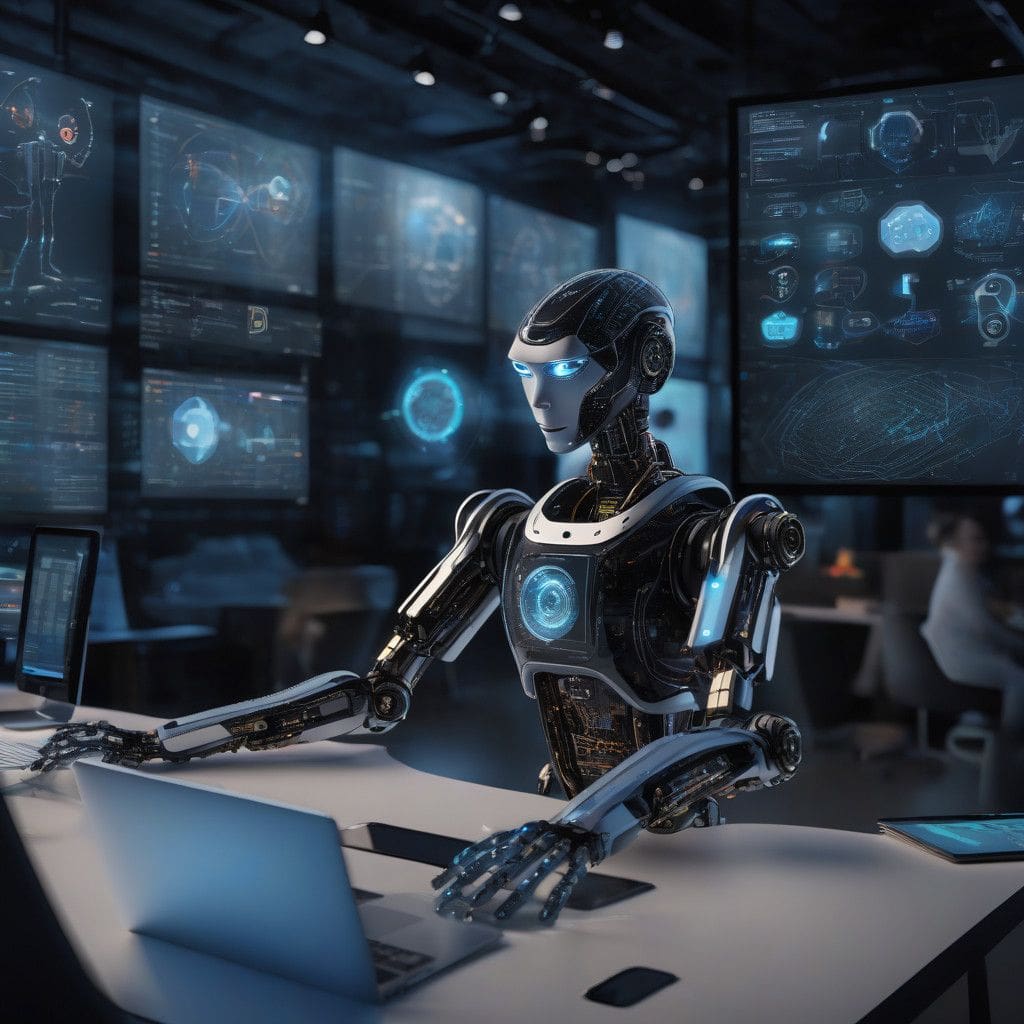In an impressive leap for the robotics sector, Physical Intelligence, a pioneering startup in robot artificial intelligence, has successfully raised $400 million in funding. This achievement places the startup in the spotlight, highlighting the growing investment interest from notable figures such as Jeff Bezos and organizations like OpenAI. The valuation of Physical Intelligence has soared to $2 billion, signaling a strong belief in its vision for universal robot software.
Physical Intelligence aims to develop a foundational software solution that can be adapted for various robotic applications. This approach looks to eliminate the traditional requirement for specialized software tailored to individual robotic tasks. By creating a universal platform, the company strives to make robots more versatile and easier to deploy across different industries, from home automation to logistics.
The competition in the AI-driven robotics space is heating up. Major technology firms, including Microsoft, Google, and Amazon, have been pouring billions into artificial intelligence and cloud technology. A report from Accel, a leading venture capital firm, forecasts that funding for AI technologies across the U.S., Europe, and Israel could reach a staggering $79.2 billion by the end of 2024. Startups such as Vicarious and Covariant are also making strides within this field, emphasizing that innovation is not just the privilege of established giants.
As the market for AI robots expands, predictions about their future prevalence are becoming bolder. Elon Musk has suggested that by 2040, there could be as many as 10 billion humanoid robots in circulation, with price tags ranging between $20,000 and $25,000. His own company, Tesla, has showcased advancements such as the Optimus humanoid robot, further fueling excitement for the potential integration of robotics into everyday life. This collective focus on robotics indicates a monumental shift towards automation and intelligent systems that can enhance productivity.
Physical Intelligence recently unveiled its innovative software system, named π0 (pronounced pi-zero), designed to illustrate the flexibility of its technology. Demonstrations showed robots efficiently executing household tasks such as folding laundry, bagging groceries, and retrieving toast from a toaster. This versatility marks a significant step toward the creation of universal robot software capable of tackling complex tasks across varied environments.
For a glimpse into the potential impacts this technology could have, consider the implications for industries that rely heavily on manual labor. Tasks that are repetitive or physically demanding could be easily managed by robots, potentially transforming the workforce landscape. Companies may find substantial cost savings, increased productivity, and improved efficiency by implementing AI-driven solutions like the universal software from Physical Intelligence.
Furthermore, as robots become increasingly capable of handling everyday tasks, the landscape of consumer products will also evolve. Imagine smart homes where robots are not just tools but integral parts of daily routines, seamlessly integrating into family life by taking on chores, preparing meals, or even assisting with childcare. This technological evolution could redefine our interactions with machines and how we perceive domestic and industrial work.
The robust backing from influential investors such as Bezos and OpenAI serves as a testament to the confidence in Physical Intelligence’s mission. These endorsements not only validate the company’s potential but also position it as a leader in the rapidly evolving field of robotics.
To conclude, as the robotics and AI landscape continues to develop, the convergence of investment, innovation, and market demand will likely accelerate advancements that will significantly alter how we interact with technology. With companies like Physical Intelligence at the forefront, the future promises an exciting horizon for AI-powered solutions that push the boundaries of what robots can achieve.












